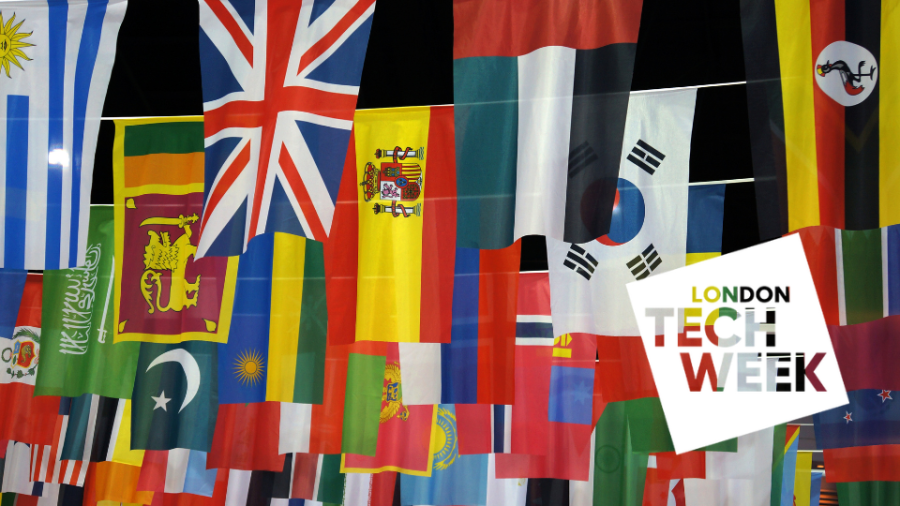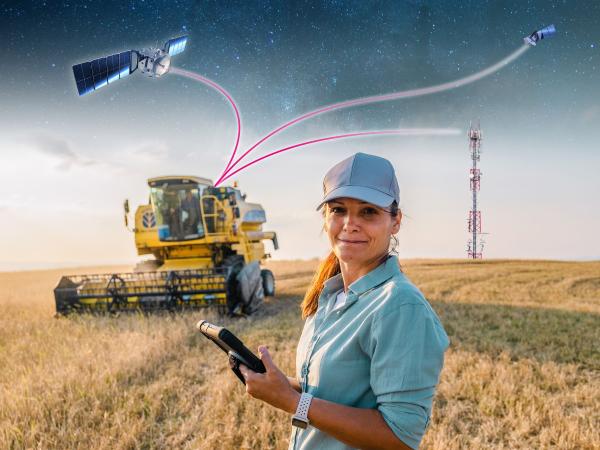In London on the 12th of June, techUK hosted the first UK-hosted International Telecoms Conference as part of London Tech Week 2023 on behalf of the Department of Science, Innovation & Technology (DSIT).

London Tech Week (12-16 June) is a global celebration of tech, uniting the most innovative thinkers and talent of tomorrow in a week-long festival. Its mission is to showcase how tech is transforming business and society, driving thought-provoking conversations around innovation, diversity and transformation while providing a platform for the tech ecosystem to come together to drive change.
This particular event provided a unique opportunity for international government stakeholders, regulators, and industry players to convene and collaborate in person. Here are some of our highlights from the day:
Future Telecoms: The UK Approach
Experts discussed the UK’s approach to open and interoperable networks, determining how we can use these learnings to shape next-generation networks, including 6G.
The government has established future telecoms as one of its five critical priority technologies in its goal for the UK to be a science superpower by 2030, with an initial funding of up to £100 million to ensure the UK is at the leading edge.
The Wireless Infrastructure Strategy sets out a policy framework to affirm the UK Government’s unwavering commitment to extending 4G coverage to 95% of the population, delivering standalone 5G to all populated areas in the UK by 2030, and investing £40 million to drive take-up of innovative 5G-enabled services for businesses and the public sector.
It sets out a comprehensive 6G strategy to harness and develop the UK’s strengths in future telecoms, and to ensure the UK can influence and benefit from the development of 6G in a way that meets the UK’s future connectivity needs.
Alongside this, there were also additional funding announcements made at the event. “I am excited to announce the Smart Infrastructure Pilot Programme, which will provide funding for six local authority pilots matched by security providers”, said John Whittingdale MP, the Minister of State for Minister for Data and Digital Infrastructure.
He added: “This is a significant step and will provide a critical boost to the UK’s Wireless Infrastructure Strategy.“We will also be initiating the first satellite pilot in Europe, a first-time OneWeb connection as a part of the UK’s ALPHA Trial Programme.”
He continued: “Since 2019, UK Government has been working to make sure everyone has access to gigabit connectors. Today, 75% of people do, up by 6%. We hope to ensure nationwide coverage in 2030. In some rural areas, this may not be possible but through hard work and collaboration, the ALPHA Trials Programme will help to deliver connectivity. The UK Government remains committed to telecoms, which has never mattered more.”
Professor Simon Saunders, DSIT and Chair of the UKTIN Wireless Networking Technologies Expert Working Group, said: “Semiconductors and AI have been the focus of the UK Government’s strategies. As for 6G, DSIT has a six-pillar strategy, which starts with identifying our vision. We thought it wouldn’t be any different from our international counterparts but soon realised that some things were missing. We want to bolster R&D, fill gaps and bring together research communities, working closely with OfCom. This reflects the UK’s aspirations to be known as a science and technology superpower.”
International Collaboration in Telecoms
Panellists explored how governments, regulators and industry can work together to tackle shared risks and challenges, such as telecoms security.
Brian Larkin, National Telecommunications and Information Administration, US, said: “The US has declared that it will be focusing on Open RAN technical and R&D efforts, and its government already has several Open RAN technical labs. There is a major opportunity here for like-minded countries to explore arrangements together. To achieve expectations, we must continue to participate in conversations.”
Stefan Lee, Deputy Cyber Director, Ministry of Transport and Communications, said: “To meet the demand of industry and civil society, there needs to be a bottom-up approach. A coalition of governments internationally will also be crucial here, precisely due to standards and regulations and particularly within the context of security. This brings geopolitical implications, and national coherence is key. The UN has provided a global framework and significantly, the UK still shares the same goals as Europe in research, development and policy. However, there may be a need for closer regulation of policy with 5G and 6G. It seems that the industry is more than willing to contribute, but we must constructively approach this. We need consultations on an international level and key partners”.
Tom Kirkman, Innovate UK, said: “Standards are increasingly important. It needs to be a national collaboration. We need to work on new funding projects and have agreed on new subsidy rates. The Atlantic Declaration is exciting. Any work we do with international governments must be strategic and I’m hoping this is something we can continue to address with Innovate UK”.
Compete to Innovate: Achieving Policy Objectives
Speakers examined the key foundations for a secure and resilient global telecoms supply market.
The Open Networks Ecosystem competition is part of the UK government’s Open Networks R&D Fund which delivers on the £250 million 5G Telecoms Supply Chain Diversification Strategy through a range of telecoms R&D projects. These include the Future RAN Competition (FRANC), the Future Open Networks Research Challenge, as well as bodies such as SmartRAN Open Network Interoperability Centre (SONIC Labs), the UK Telecoms Innovation Network and the UK Telecoms Lab.
Nicola Freeman, DSIT, said: “Projects are working individually and collectively, and ultimately this will have a great impact on private investment in the UK. Our government steering group will also increase leverage, creating ongoing dialogue.”
Robert Driver, Ex-Head of UK5G and Senior Advisor at UKTIN said: “UKTIN will develop a coherent approach, systematically looking at how key technology areas can be explored. We will be taking the best bits of UK5G - a programme about the adoption of technologies that lasted for almost five years, in which we learned a lot about how to create a successful innovation network - and making it much broader.”
He added: “We are looking far beyond Open RAN. People are realising that you only get diversification if there is a demand and international activity, but Europe is important too. There is a global market. How do we collectively begin to influence this? In the standards and the processes, we need to include security and resilience, at the heart of the diversification strategy. It is also important that people volunteer for working groups.”
Maria Lema, CEO of Weaver Labs and member of the UKTIN Advisory Board, said: “The supply chain of telecoms is complex and there are so many players that will benefit from an open-network approach. We get to create an ecosystem around this network. But the principle is to open up the industry, not just the network itself.”
Professor Rahim Tafazolli, Director of 5GIC, 6GIC and ICS, University of Surrey and member of the UKTIN Advisory Board, said: “DSIT has taken our recommendations and implemented them. But of course, we need businesses to get on board too. Thankfully, I think we are moving in the right direction. We know what direction we should be moving in, and will be working with a range of countries based on their different capabilities.”
The conference closed with an address from Susannah Storey, Director General for Digital Technologies and Telecoms at DSIT, who described the day as “vibrant” and “thought-provoking”.
“Introducing the right infrastructure globally is challenging, but the UK is committed to thinking about tomorrow and the day after as well. Future Telecoms is a priority, with a focus on cybersecurity,” she said.
Storey continued: “Today is a testament to a secure and resilient global infrastructure. Partnerships are at the heart of delivering the progress we need and driving the telecoms landscape forward. No one country can solve this alone, and these discussions have broadened our understanding and encouraged collaboration. It is crucial to make sure we keep this momentum going.”
Follow UKTIN on Twitter for further updates.









